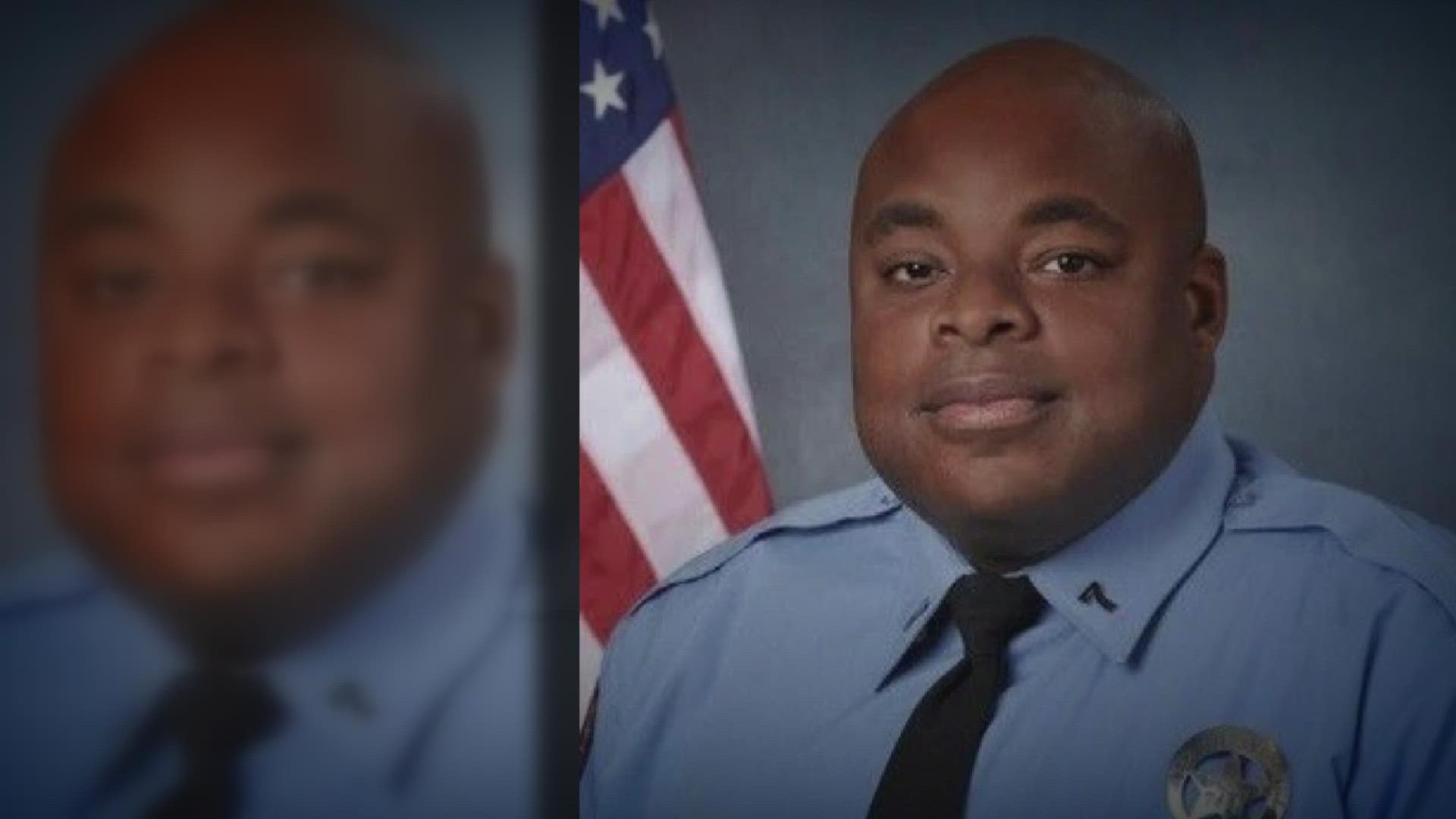NEW ORLEANS — Dramatic new information was revealed Wednesday in prosecutors’ opening statement in the first-degree murder trial of Darren Bridges, accused of first-degree murder in the October 2017 fatal shooting of New Orleans police officer Marcus McNeil.
From police reports and previous accounts, Bridges stands accused of shooting McNeil at close range as the two grappled when McNeil tried to arrest the 35-year-old near his apartment in New Orleans East during a task force patrol in a notorious drug-dealing corridor.
District Attorney Jason Williams, personally delivering the prosecution’s opening statement, told the jury how fellow officers in the area heard two distinct gunshots. But after a pause, Williams said, there was a third shot.
“He put a gun to his head and pulled the trigger one more time. That changed everything,” Williams told the jury.
Calling the killing an “execution,” Williams said fellow officers immediately ran toward the commotion and found a trail of blood in front of an apartment with keys still dangling from the front door lock.
Lt. Ray Jones, supervisor of the task force, said he drove to the scene and summoned SWAT officers to enter the house. Jones, the first witness to testify Wednesday, said the officers found Bridges, bleeding from his own gunshot wound, as well as a 9mm handgun hidden in a Timberland boot and a backpack full of crack and powder cocaine, prescription drugs and syringes.
Despite his 24 years with the NOPD patrolling some of the city’s toughest neighborhoods, Jones had to pause to compose himself on the witness stand, referring to McNeil by his widely and affectionately used nickname “Milk Dud.”
Upon arrival at the hospital where McNeil was taken, Jones said he was swarmed by fellow officers. But shaken by the first and only loss of an officer under his command, Jones said he quietly went to his patrol car and sat alone in stunned silence.
The high-stakes the trial was apparent Wednesday in the number of New Orleans police officers who stopped by to listen in, including at one point in the morning, Superintendent Shaun Ferguson.
In the opening statement on behalf of Bridges, defense attorney Christian Bonin painted a different picture for the jury. Bonin told the jury he will show that the communications by the task force will show that they were looking for a man in a white shirt suspected of dealing drugs, but Bridges was wearing a blue shirt.
He said his client was trying to walk home when he was “grabbed from behind” by an officer “in battle dress uniform.”
“Does Darren try to fight?” Bonin asked. “No, he runs.”
After McNeil caught up to Bridges, McNeil used his Taser twice, Bonin said. He told the jury that audio from body cam footage will show that when McNeil demanded that Bridges put his hands behind his back to be handcuffed, his client can be heard responding, “I’m trying, sir.”
“The facts are going to show that he tried to avoid this conflict,” Bonin told the jury.
Bridges himself was shot by another member of the task force who responded to the initial gunshots. Before Bridges was hit, prosecutors said he turned and pointed his gun at that officer, leading to an additional charge of aggravated assault on a police officer. Bridges also faces several counts of possession of drugs with intent to distribute, as well as obstruction of justice for trying to hide the gun.
Bridges has been locked up since recovering from his injuries. His trial was delayed for several years when he was initially found mentally incompetent to stand trial, diagnosed with a form of schizophrenia. Once he was stabilized enough to stand trial, the COVID-19 pandemic closed the courthouse and the trial was further delayed.
The trial is expected to stretch into next week. If convicted as charged of first-degree murder, Bridges faces a mandatory life sentence without the possibility of parole.
► Get breaking news from your neighborhood delivered directly to you by downloading the new FREE WWL-TV News app now in the IOS App Store or Google Play.

